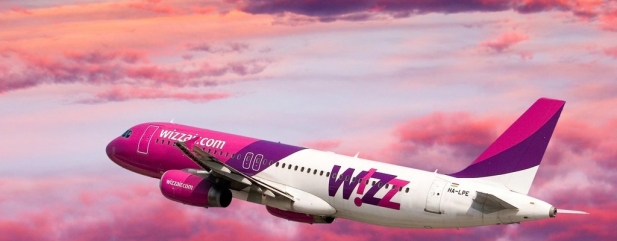Archived article
Please note that tax, investment, pension and ISA rules can change and the information and any views contained in this article may now be inaccurate.
Wizz Air still attractive despite setback

Hungarian low-cost airline Wizz Air (WIZZ) has become the latest budget airline to suffer turbulence. We are still positive on the investment case given the long-term growth potential.
The shares are down around 11% in the wake of 2017 net profit guidance being cut (1 Feb) from a range of €245m to €255m to between €225m and €235m.
MORE RESILIENT THAN RIVALS
Wizz Air could prove to be more resilient than its competitors EasyJet (EZJ) and Ryanair (RYA) who both downgraded profit expectations last year as a weaker pound following the Brexit vote hit earnings.
The airlines were further affected by air traffic strikes and terrorism. EasyJet’s struggles with lower customer demand saw its share price hit a five-year low in October 2016 amid a flurry of broker downgrades.
Wizz is faced with volatile currency movements. These issues are further compounded by the deflationary pressure of lower fuel prices on fares and recent bad weather in Central and Eastern Europe.
Lower fares account for €10m of the profit downgrade according to UBS analyst Jarrod Castle, while €10m resulted from operational disruption and political instability.
HOW WIZZ SHARES CAN TAKE OFF
There are reasons to take encouragement. In 2016, the airline has managed to fly an extra million passengers with only one extra Airbus A321.
Panmure Gordon analyst Mark Irvine-Fortescue has flagged the stock as his top pick in the sector, at least partly on valuation grounds. The shares at £15.83 trade on 9.2 times earnings per share (PE) for the year to March 2018.
This is lower than Ryanair’s PE of 12.1 for the year to March 2018 and EasyJet’s PE of 10.9 times for the year to September 2018.
Irvine-Fortescue believes the market is under-estimating the risks to EasyJet’s forecasts, and argues free cash flow will be materially negative in the full year 2018/2019, which will drive up debt in 2019.

Take advantage of weakness in Wizz Air as this setback will prove a short-term blip in a long-term growth story. (LMJ)
Important information:
These articles are provided by Shares magazine which is published by AJ Bell Media, a part of AJ Bell. Shares is not written by AJ Bell.
Shares is provided for your general information and use and is not a personal recommendation to invest. It is not intended to be relied upon by you in making or not making any investment decisions. The investments referred to in these articles will not be suitable for all investors. If in doubt please seek appropriate independent financial advice.
Investors acting on the information in these articles do so at their own risk and AJ Bell Media and its staff do not accept liability for losses suffered by investors as a result of their investment decisions.

 magazine
magazine









